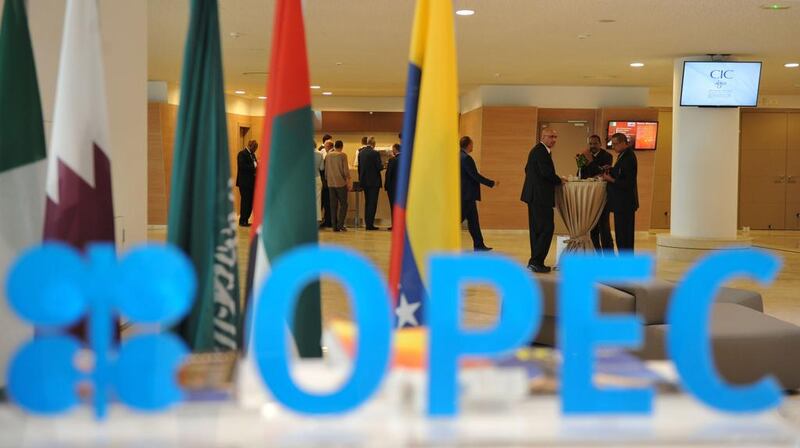There could be no clearer indication of Saudi Arabia’s communication problem than the kerfuffle its energy ministry found itself in on Tuesday regarding its February crude output level.
On the one hand, the kingdom's energy ministry communicated to Opec that its official output in February was a little over 10 million barrels per day, up 263,000 bpd from the previous month. Just to emphasise: these are the official output levels reported by the energy ministry to the Opec secretariat on a monthly basis.
Later in the day, the Saudi energy ministry took the highly unusual step of issuing a statement to say "supply to the market" last month was down 90,000 bpd at 9.9 million barrels per day. Again, for emphasis: the ministry was telling the market that both January's and February numbers were misconstrued.
While it obviously wanted to emphasise that February’s “supply to market” was down, the statement was also saying that January’s number was significantly higher, at 9.99m bpd (versus the officially reported 9.75m bpd).
“The difference between what the market observes as production, and the actual supply levels in any given month, is due to operational factors that are influenced by storage adjustments and other month to month variables,” the statement said, as reported by the official news agency SPA.
Is this a clarifying statement to the market? Hardly.
The only thing that these confusing series of events confirm is that the data on world oil output and trade are extremely unreliable.
The UAE’s minister, Suhail Al Mazrouei, said as much last week in an interview on US television when he pointed out the huge gap in estimates of the UAE’s output by “secondary sources,” which are the various news agency polls of analysts, data from oil tanker tracking firms, and the like, an average of which are in fact the official reference Opec and non-Opec uses for their output deal.
Mr Al Mazrouei noted that the secondary sources estimates for the UAE’s output in January had differed from one extreme to the other by 150,000 bpd, or significantly more than the country’s pledged cut of 136,000 bpd.
__________________________________
More oil coverage
■ Saudi says committed to oil market stability despite production increase in February
■ IEA says slow progress in cutting oil glut should be no surprise
■ Saudi Arabia tells Opec it raised output to 10 million bpd in February
■ Comment: I'll be back: oil's price slump is tough to kill
■ Analysis: Why mood shifted in the global oil market – and might shift again
__________________________________
Saudi Arabia and its Opec partners deserve some sympathy. The kingdom alone accounts for a little more than 10 per cent of world output, while the group in total now accounts for about a third. Overall, oil markets can be very complex and murky and Saudi’s is often seen as the most powerful guiding voice.
The analogy has often been drawn between Saudi Arabia’s energy ministry and the governor of the Federal Reserve in the US, who is charged with shepherding US monetary policy and has a strong influence over interest rates and the dollar.
The Fed governor must walk a tight rope in terms of what she says and the Saudi minister must do likewise in order to not cause unintended consequences in the market. But the main lesson from the Fed for oil markets is that a) it is extremely hard to hold back the forces of the market and b) actions are ultimately what counts.
On the latter, Saudi Aramco told its Asian customers week before last that it would allocate full amounts for April at lower official selling rates. That action says it is not willing to sacrifice an unlimited amount of market share however much lip service it pays to price stability.
amcauley@thenational.ae
* The National and CNBC are global content sharing partners. The video below originally appeared on CNBC.com.
Follow The National's Business section on Twitter





